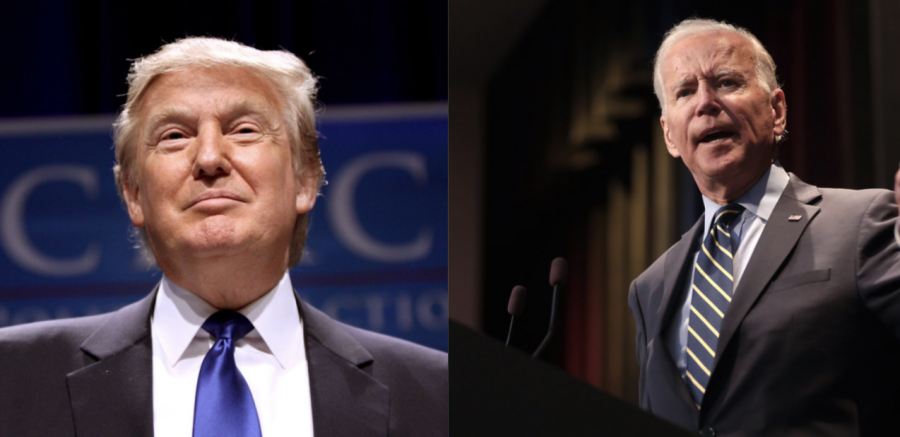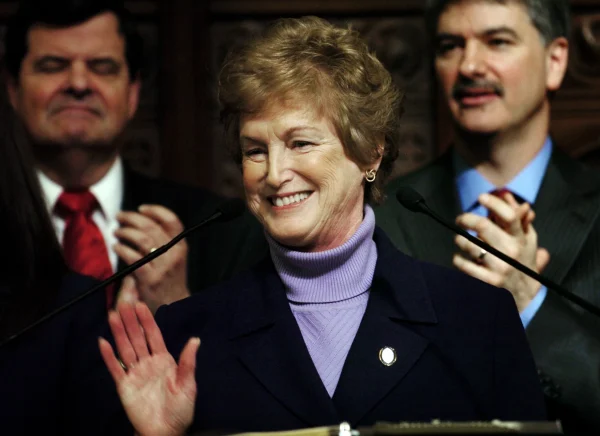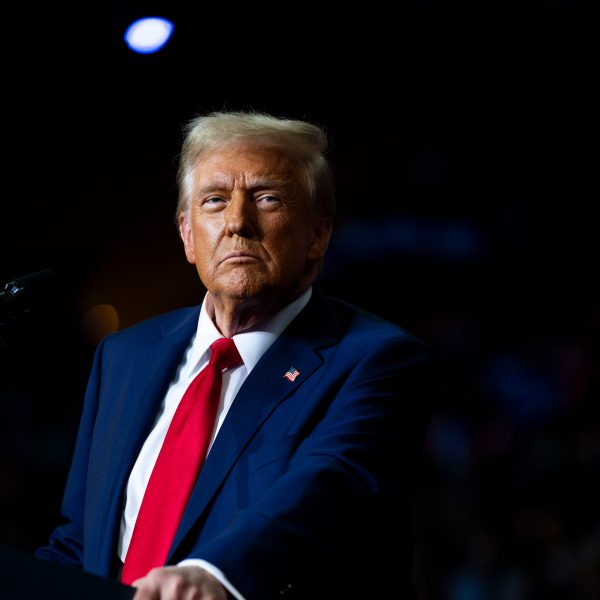Trump v. Biden: Who’s Who
Though Americans are aware of who the Democratic and Republican candidates for president are, it is important they know the facts and what they have been able to achieve leading up to the point of candidacy, and eventually, (re)election.
Democratic candidate Joseph R. Biden
Joe Biden, presidential candidate and 47th vice president of the U.S., is currently 77 years old and was born in Scranton, Pa. Biden pursued the Democratic nomination for president in 1988 and 2008.
Throughout the COVID-19 pandemic, Biden searched for ways to help voters see that he had been formulating ideas rooted in recommendations from specialists in health care and economics – including making coronavirus tests widely available and free of charge. According to the New York Times, he said that there should also be no out-of-pocket expenses for patients to obtain a potential vaccine. And he was strongly critical of the reaction of President Trump to the virus, accusing him of responding too slowly.
As vice president, Biden saw the passing of the Affordable Care Act – or Obamacare – and has demonstrated that health care is one of his highest priorities. Because of his own experiences regarding health care, such as his son’s death of brain cancer and the death of his first wife and daughter, he remains advocating for more affordable health care options.
Biden has extended his higher education proposal and proposes to provide free college tuition to families earning less than $125,000 for public universities, historically black colleges and universities, and minority-serving institutions, along with his previous commitment to make community college tuition-free.
The 2020 presidential candidate has also put a significant emphasis on tackling climate change, naming it one of the four crises the world currently faces. He launched a new plan this summer, calling for the U.S. to reach a carbon-free power system by 2035 and a $2 trillion investment in renewable energy and infrastructure to tackle the challenge of climate change during his first four years in office.
Biden has not supported the calls to defund police forces in the aftermath of nationwide demonstrations over racial injustice, but he supports offering an additional $300 million in support for community-based policing, as well as matching police with mental health providers to help meet community standards, while also promoting a national standard regarding use of force.
Biden promises to reverse Trump’s policies during his first 100 days in office, such as separating parents from their children at the U.S.-Mexican border, lifting the cap on the number of asylum applicants, and putting an end to travel bans from several Muslim-majority countries. He also promises to support the “Dreamers” as well as to ensure that they are eligible for federal student assistance.
Republican candidate Donald J. Trump
Currently, Donald Trump serves as the 45th president of the U.S., assuming office on Jan. 20, 2017. On Mar. 17, 2020, he crossed the delegate threshold needed to secure the Republican nomination. At the Republican National Convention on Aug. 24, 2020, he was officially nominated.
Trump’s reelection has centered on the economy, employment, immigration, and foreign policy. During his inaugural address, he outlined his agenda called “America First.”
The U.S. withdrawing from the Iran nuclear agreement, the passage of the Tax Cuts and Jobs Act of 2017 and the First Step Act in 2018, decreasing the size of the ISIS caliphate, and creating the Space Force as a separate military branch were key policy measures during Trump’s first term. Trump has also made more than 200 federal judicial appointments, including two U.S. Justices of the Supreme Court.
Trump has taken a strong position on China in terms of investment, combined with a campaign to shield local producers from international competition, and these remain core aspects of his trade policy.
The president stressed his work during his first term, renegotiating previous trade agreements that he claims were unfair to the U.S. — like NAFTA, between the U.S., Canada and Mexico — or leaving them explicitly — like the Trans-Pacific Partnership.
In 2016, Trump supported the repeal of the Affordable Care Act, initiated by former President Barack Obama and Vice President Biden. The administration has succeeded in undoing portions of the legislation, including the elimination of the individual mandate, which required people to purchase health insurance or face a tax penalty, despite stopping short of a full elimination.
Pres. Trump has also vowed to lower U.S. drug prices and implemented steps in July to enable discounts and imports of cheaper drugs from abroad, although some industry experts have said that they will not have much effect.
During the COVID-19 pandemic in the U.S., Trump has repeatedly said that the virus would “disappear,” despite arguments from Center for Disease Control and Prevention (CDC) studies and reports, and experts, such as director of the National Institute of Allergy and Infectious Diseases Anthony Fauci.

Amanda is a senior majoring in communication with a concentration in journalism, and a double minor in political science and English. She has been involved...





